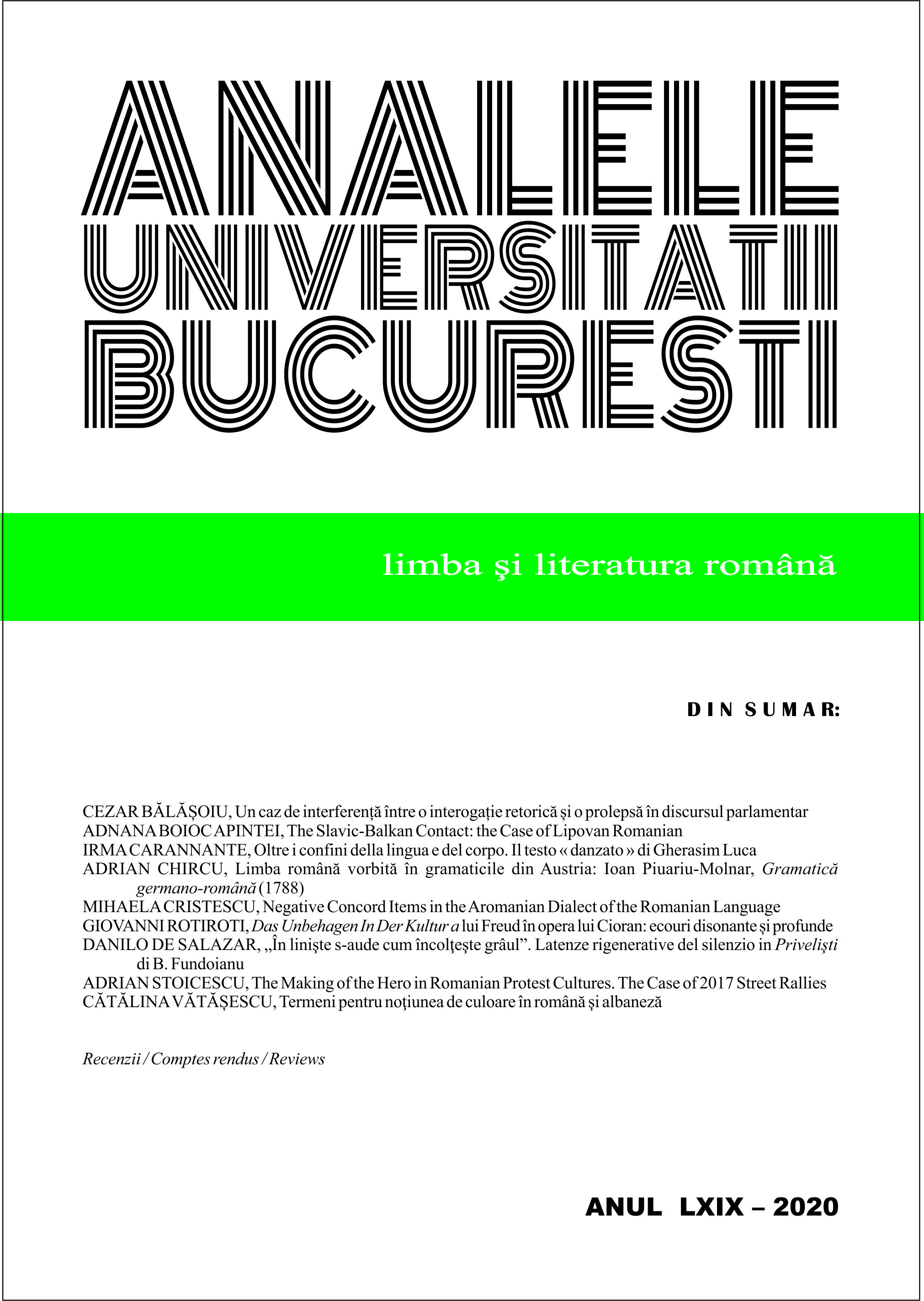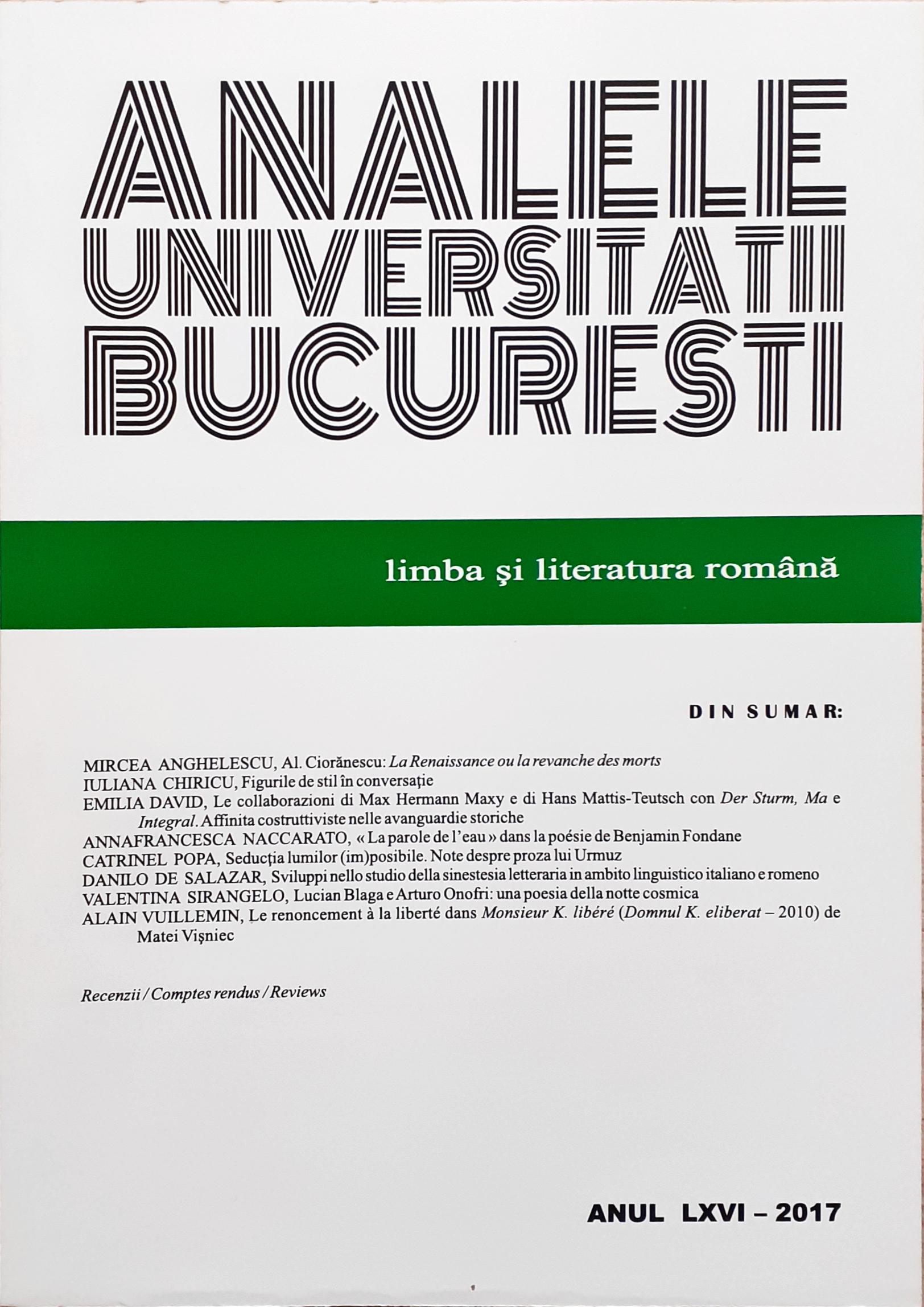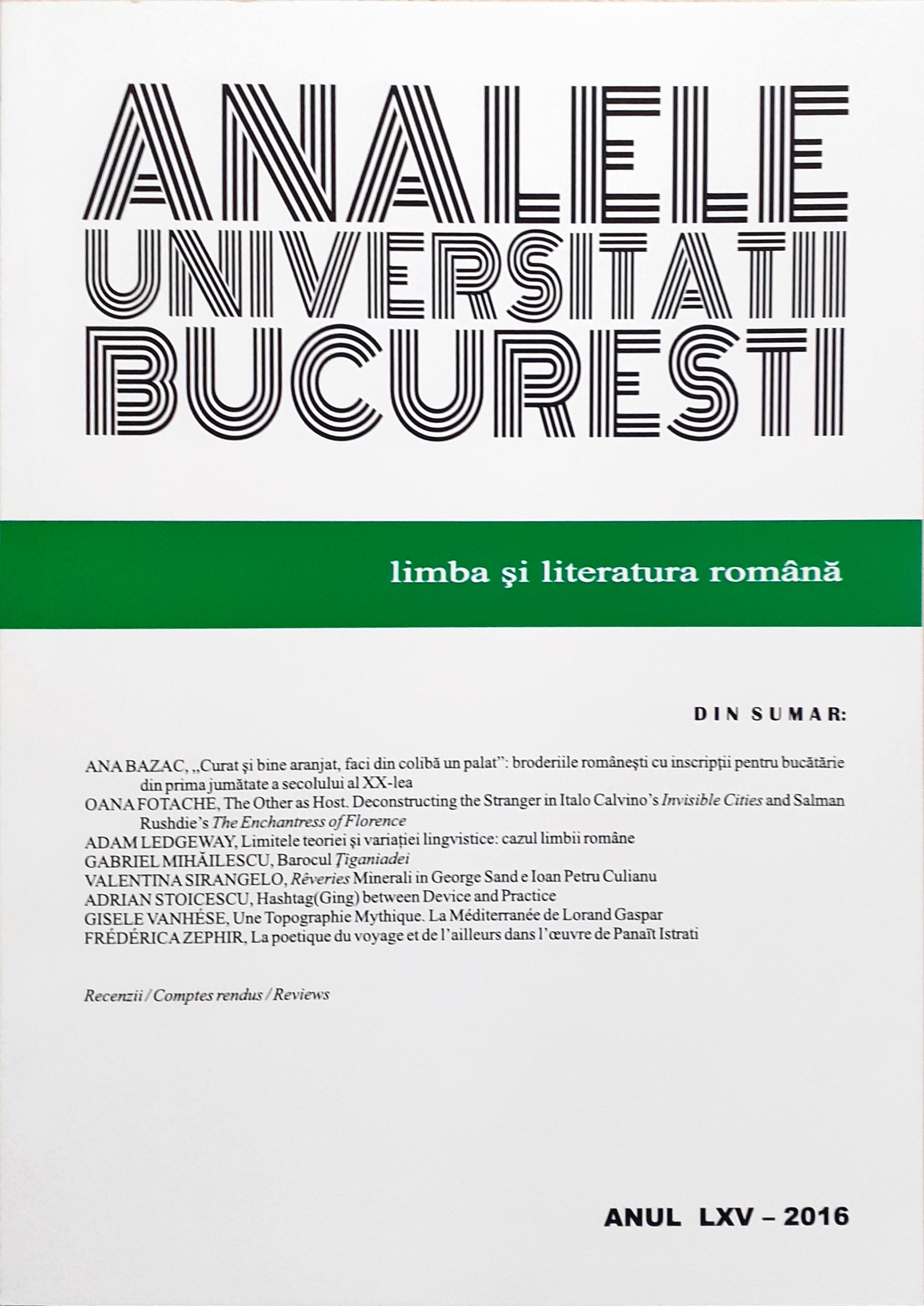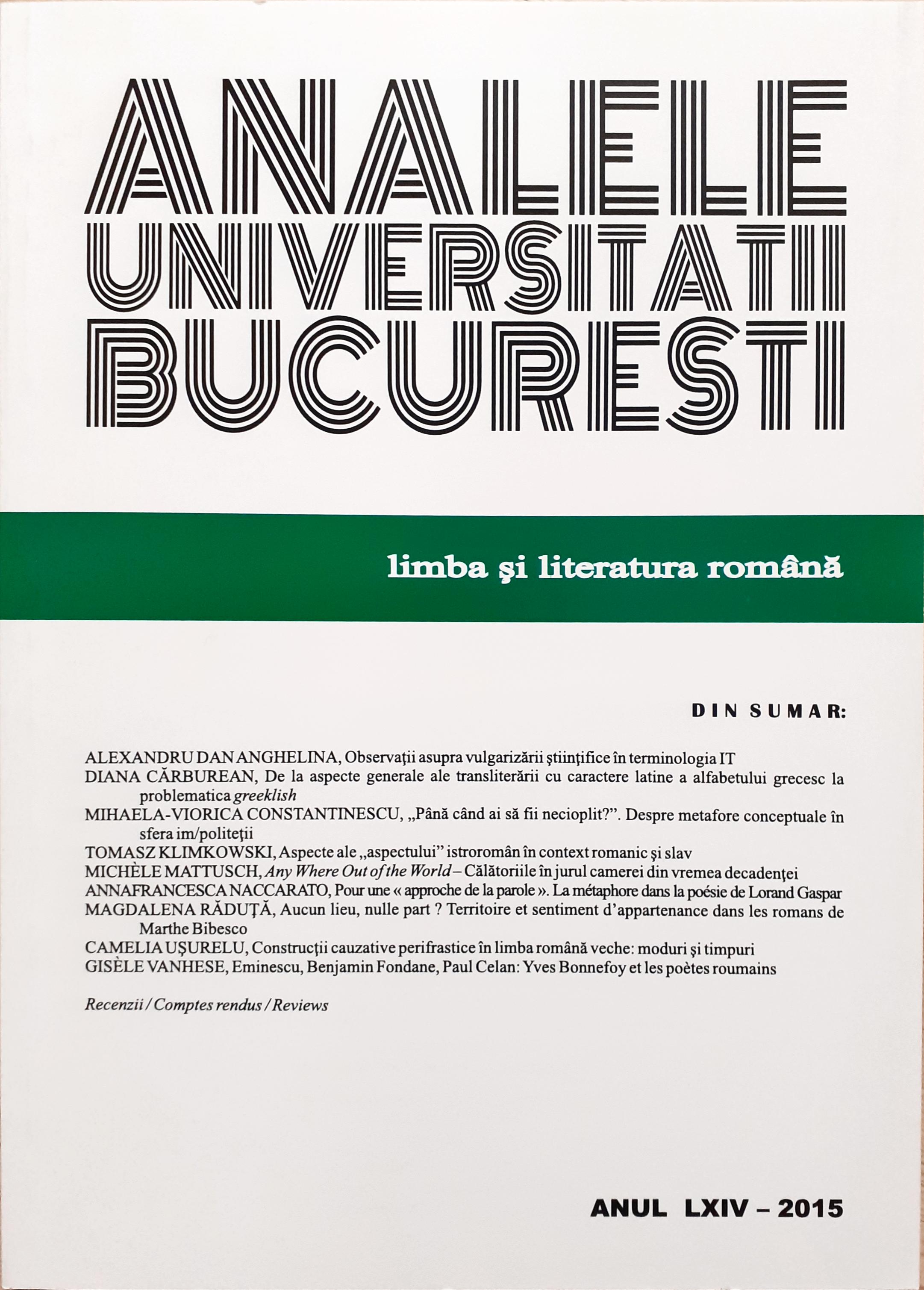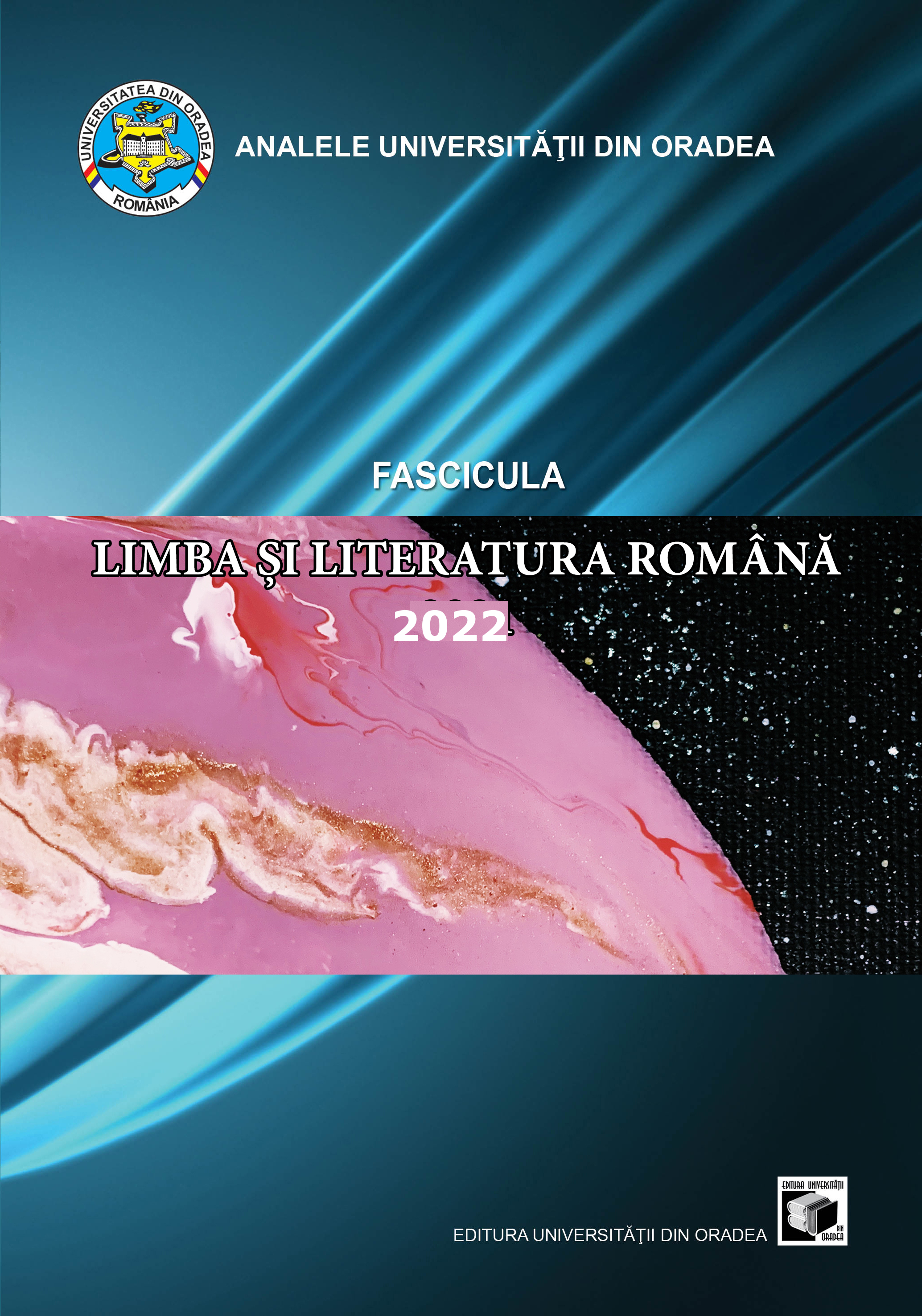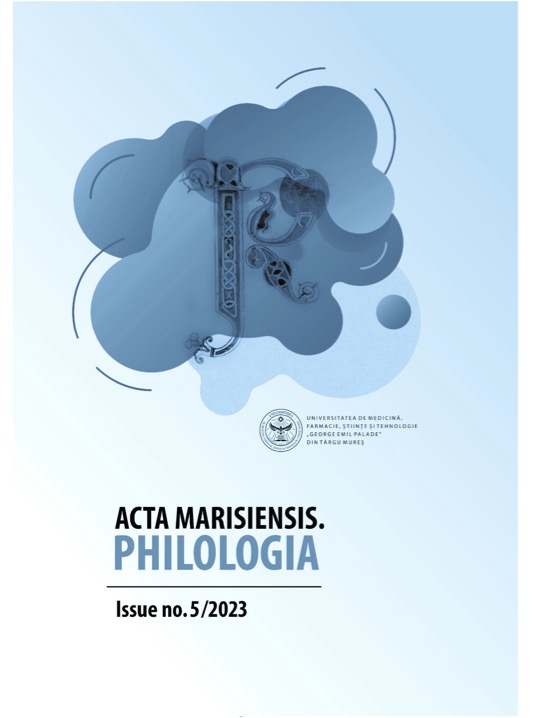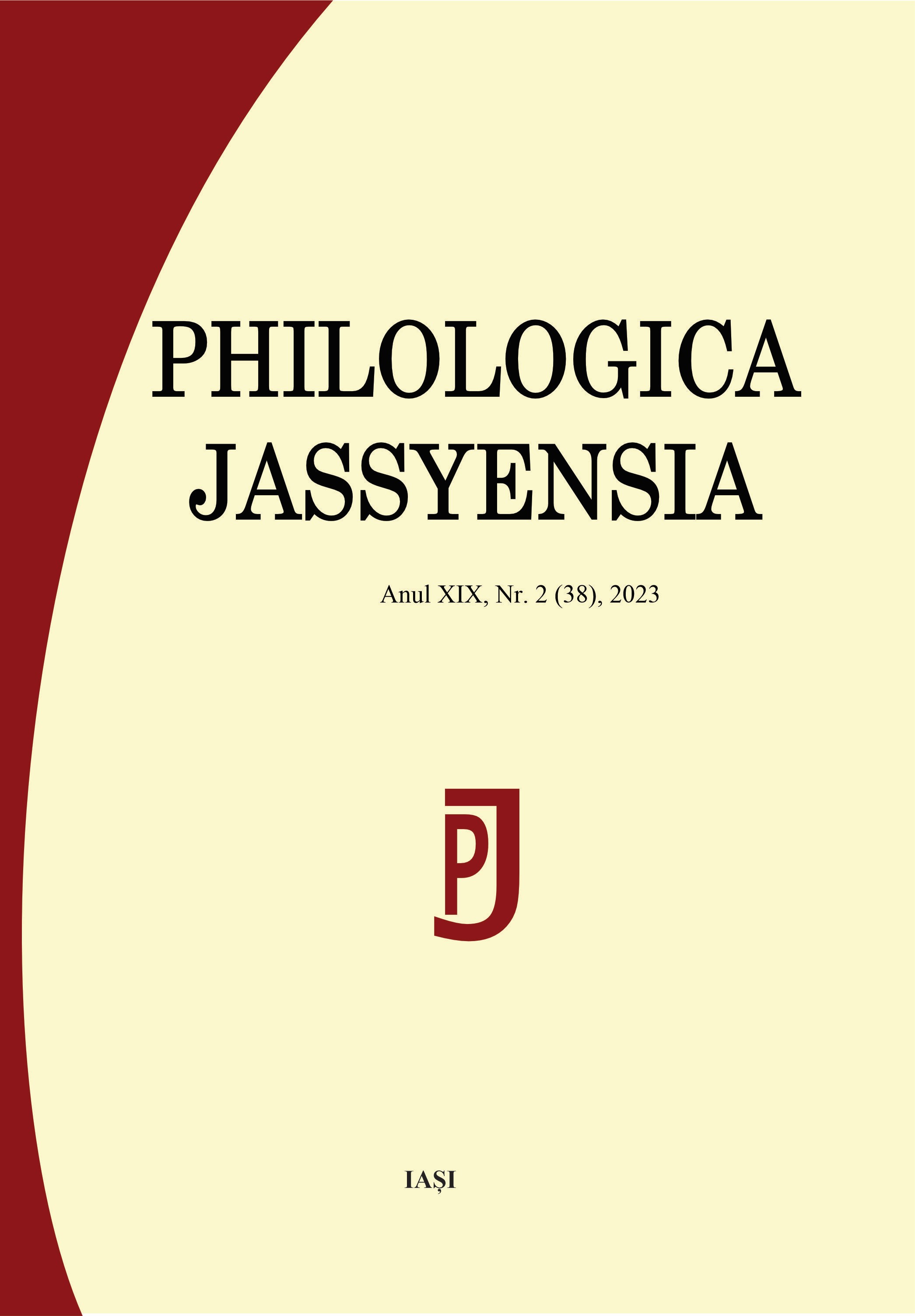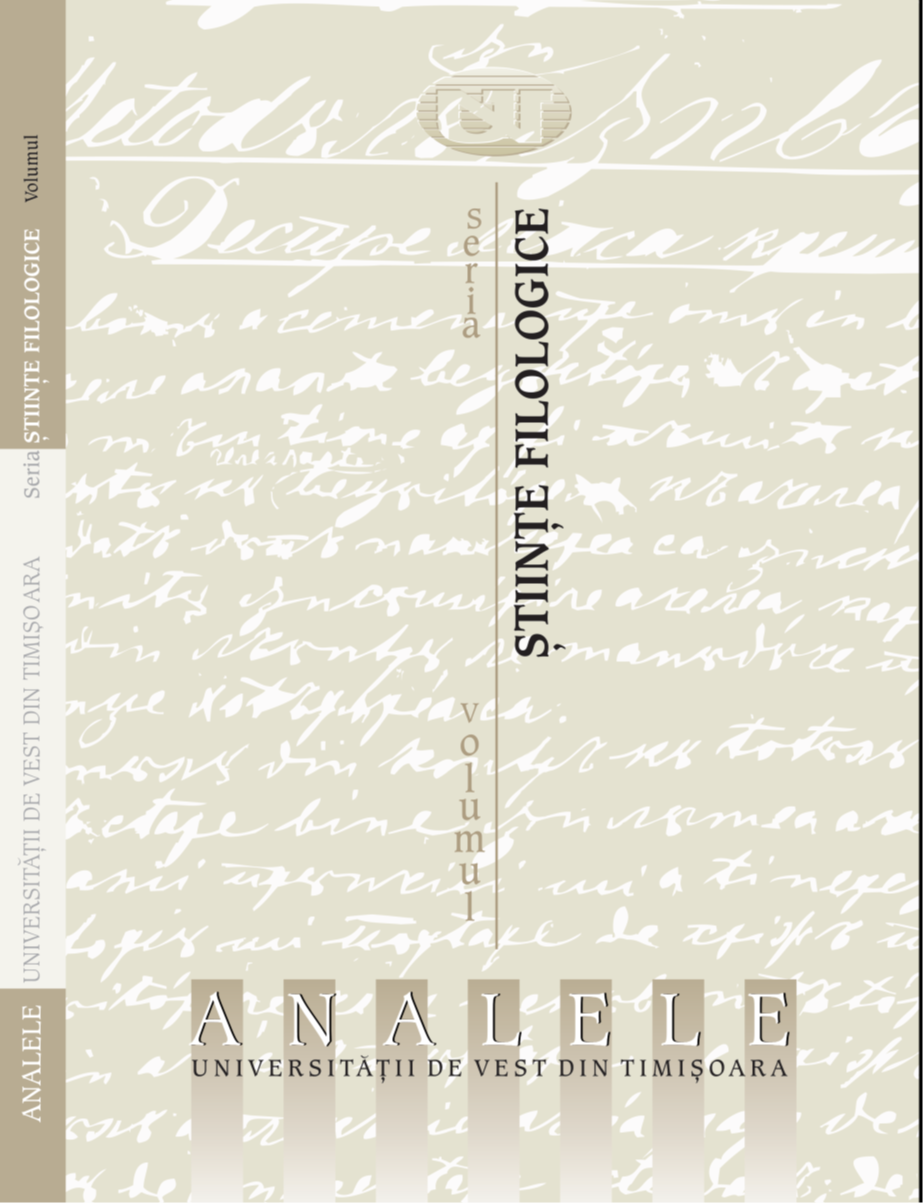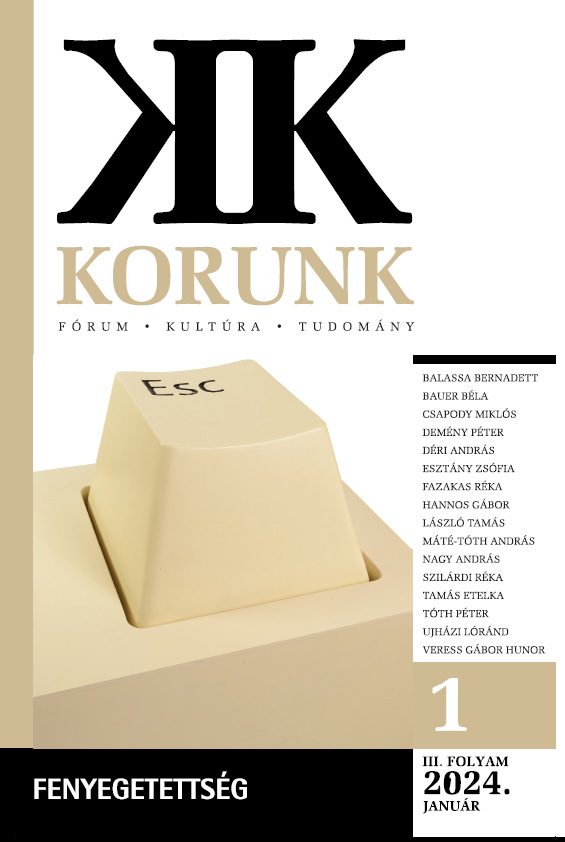Author(s): Oana Zugravu / Language(s): Romanian
Issue: 2 (38)/2023
Eugen Ionescu – a figure long controversial in both national and universal literature – writes in order to express his astonishment at this world. He senses and experiences perpetual amazement at any thing, from the very existence or presence on this planet to performing seemingly banal actions, such as uttering words or eating. But, even more profoundly, he feels the loss of the mundane miracle, the lack of awareness from his fellow men, their estrangement from the light and sinking into the mire. Hence the specificity of Ionescu's playwriting, which, in his view, goes beyond what has generally been established as the theater of the absurd and is, in its essence, more a theater of wonder, of the uncommon, an inquisitive theater.We consider that the nucleus or engine of this artistic universe – which is therefore a projection of existential anxieties – is the ridiculous character, who is the very subject of our analysis, as announced in the title. This character is created, first and foremost, with the help of humor – a harsh, dark humor, which from the author’s point of view, offers no escape, but actually exacerbates the tragedy of the human being: "humor, being an intuition of the absurd, seems to me more desperate than tragedy. Humor offers no way out". Thus, Eugen Ionescu discovers the comic in the tragic and the tragic in the comic, the ontological emptiness in playing, and vice versa. The ridiculous character corresponds to this vision, because tragicomedy is inherent to his nature. In the Ionescian world, both connotations are to be found: first, in the surface layer of the text, the connotation is that which triggers laughter, illustrated by a puppet or a mechanism; then, in its depth, gradually and unsettlingly revealed, the connotation is worthy of ridicule, laughable at – semantics which shows the true nature of the Ionescian character, illustrating not merely the mechanism but also the man, fated to death and sentenced to life by the terror of history and society, or doomed, burdened with the misfortune to be born and powerless in the face of the oppression of time and the Creator.Thus, beyond the persona, the buffoonish style, the clowning with which Eugen Ionescu shocked his audience in a Baudelairean manner ever since his Romanian times, his entire work reveals the reflection of the self in confrontation with itself, with its anxieties. Through the ridiculous character created, the playwright transitions from the particular to the universal, his goal being to figure the non-figurative, to express the inexpressible. In this dialectic where roles change, paper beings come to life through our projection onto their construction mechanism, and can be identified in our profound social self. Under these circumstances, this type of character represents the only solution, the only weapon or shield for living in this absurd universe. It implies only apparent acceptance or tolerance, because its very construction conveys the cry of despair and the author’s revolt against the opaqueness of the world and his awareness of his condition.Could the ridiculous character be an answer to the playwright's questions? We cannot answer this question with certainty, but undoubtedly, by creating this archetype, Eugen Ionescu responds to a way of creating and living because, beyond the resurrection of the tragic – mentioned throughout our presentation – the playwright creates a new style, in keeping with the complexity of the 20th-century man. The loss of the mundane miracle is thus portrayed through a character that simultaneously embodies ridicule, fragility, and grandeur. Laughter turns into a grimace, the true value of the character being self-awareness, in a Camusian spirit. Beyond linguistic and ethnic barriers, transcending time and space, carrying a part of Romanian spirit and culture within, at the same time accessing universality, Eugen Ionescu promotes the idea that we are all actors in the theatrum mundi. Consequently, laughter remains one of the constants of the character created, a hypostasis of an individual who is not necessarily tragic, but rather skeptical and inquisitive.
More...
